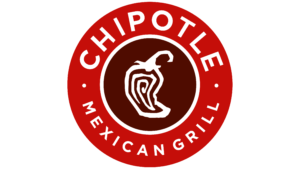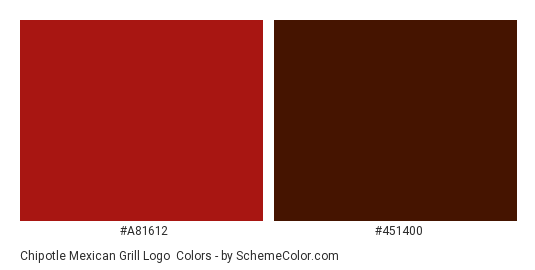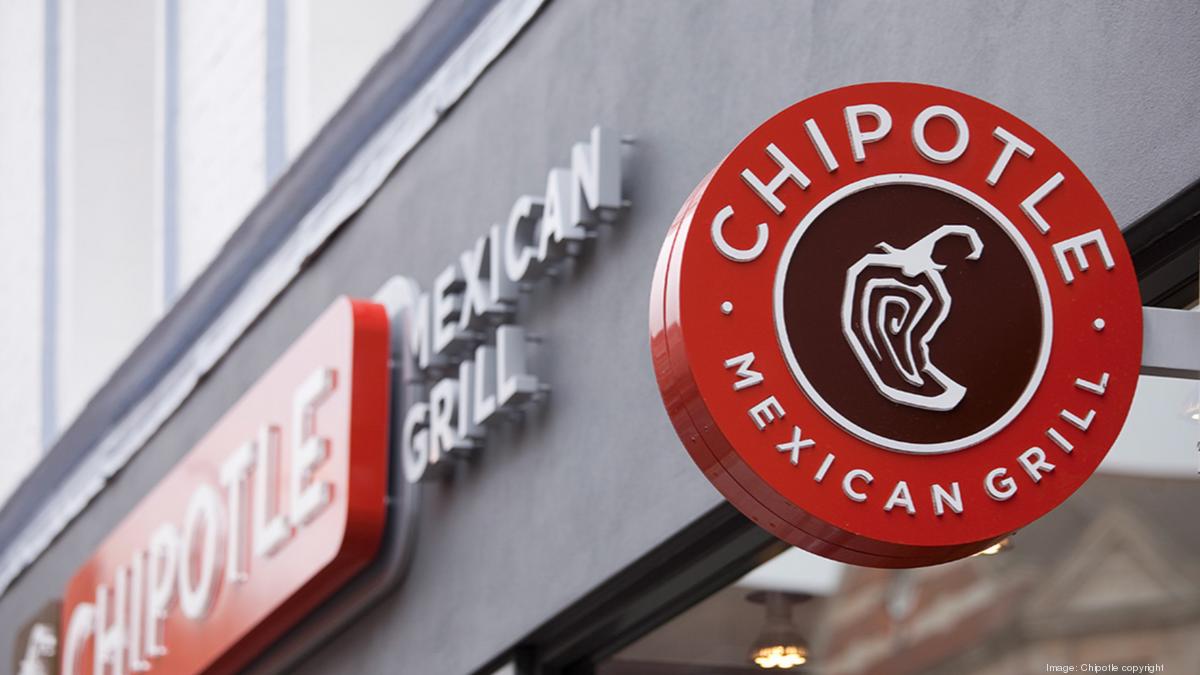Chipotle Mexican Grill, a trailblazer in the fast-casual dining segment, has captured the hearts and taste buds of millions with its fresh and flavorful Mexican-inspired cuisine. Founded in 1993, Chipotle has revolutionized the way people think about fast food by offering a unique combination of speed, customization, and high-quality ingredients.
With a focus on transparency, sustainability, and a commitment to “Food with Integrity,” Chipotle has become a beloved brand, catering to health-conscious consumers seeking delicious and ethically sourced meals.
Prepare to embark on a culinary journey that promises bold flavors and a dining experience like no other.
Brand Elements of Chipotle
Chipotle, the popular fast-casual restaurant chain, has established a strong and recognizable brand in the highly competitive food industry. Behind its success are carefully crafted brand elements that contribute to its distinct identity and resonate with its target audience. This article explores the key brand elements of Chipotle, including its brand name, logo, tagline, colors, typography, and brand voice.
Brand Name: The brand name “Chipotle” holds significant associations with the chain’s Mexican-inspired cuisine. It refers to the smoky, dried chili pepper used in Mexican cooking, reflecting the brand’s focus on bold flavors and authentic ingredients. The name effectively communicates the essence of Chipotle’s brand and helps establish a memorable and distinct identity.
Logo: Chipotle’s logo is a stylized emblem that features the company name in bold, lowercase letters. The use of lowercase typography lends a casual and approachable feel, aligning with the brand’s fast-casual positioning. The simplicity and clarity of the logo reflect Chipotle’s commitment to straightforward, high-quality ingredients and its dedication to transparency. You can also create your own effective logo same as Chipotle using an AI logo generator.

Tagline: Chipotle’s tagline, “Food with Integrity,” encapsulates the brand’s core values and differentiating factors. The tagline highlights Chipotle’s commitment to serving responsibly sourced ingredients, sustainable practices, and transparency in the food industry. It communicates the brand’s mission and resonates with health-conscious and socially conscious consumers seeking ethical dining options.
Colors: Chipotle’s brand colors consist of a warm red, off-white, and black. The red color, reminiscent of chipotle peppers, symbolizes the brand’s spicy and bold flavors. It also evokes feelings of passion and energy. The off-white background and black lettering provide a clean and contemporary aesthetic, reinforcing the brand’s commitment to simplicity and authenticity.

Typography: Chipotle uses a simple and modern typography style that aligns with its brand personality. The primary font is a clean and easily readable sans-serif typeface. This choice reflects the brand’s straightforward and approachable nature while ensuring legibility across various communication channels.
Brand Voice: Chipotle’s brand voice is characterized by a casual, friendly, and genuine tone. It aims to connect with its audience through conversational language that reflects the brand’s commitment to transparency, quality ingredients, and customization. The brand voice is often seen in social media posts, website content, and marketing materials, establishing a relatable and engaging communication style.
Chipotle’s brand elements, including its name, logo, tagline, colors, typography, and brand voice, work together to create a cohesive and recognizable brand identity. These elements effectively convey the brand’s commitment to high-quality, responsibly sourced ingredients, customization, simplicity, and transparency. By consistently applying these brand elements across various touchpoints, Chipotle strengthens its brand recognition and fosters a connection with its target audience, contributing to its ongoing success in the competitive food industry.
Also Read: Marketing Mix And STP Analysis of Chipotle
Brand Strategies of Chipotle
Chipotle has achieved remarkable success by implementing effective brand strategies. Its commitment to quality ingredients, customization, and sustainability has helped it build a strong brand identity and a loyal customer base. This article delves into the details of Chipotle’s brand strategies, including its brand positioning, brand messaging, brand experience, and brand extensions.
Brand Positioning: Chipotle has positioned itself as a leader in the fast-casual dining segment by focusing on several key elements:
a. “Food with Integrity”: Chipotle’s brand positioning revolves around its commitment to serving “Food with Integrity.” This positioning highlights its dedication to using high-quality, responsibly sourced ingredients, including locally grown produce, hormone-free meats, and organic options. Chipotle’s emphasis on sustainability, ethical sourcing, and transparency differentiates it from traditional fast-food chains and appeals to health-conscious and socially conscious consumers.
b. Customization and Freshness: Chipotle’s brand positioning emphasizes customization and freshness. Its “Build Your Own” model allows customers to personalize their meals by choosing from a variety of ingredients and toppings. This positioning resonates with consumers seeking control over their food choices and a unique dining experience. Chipotle’s focus on preparing food on-site, using fresh ingredients, and offering made-to-order meals reinforces its brand promise of freshness.
Brand Messaging: Chipotle’s brand messaging effectively communicates its values, mission, and unique selling propositions. The brand messaging is centered around the following key aspects:
a. “Cultivate a Better World”: Chipotle’s brand messaging highlights its commitment to making a positive impact on the food industry and the world at large. It emphasizes the importance of sustainable sourcing, animal welfare, and reducing the environmental footprint. By communicating its mission to “Cultivate a Better World,” Chipotle establishes an emotional connection with its audience, showcasing its dedication to responsible business practices.
b. Transparency and Trust: Chipotle’s brand messaging emphasizes transparency in its sourcing and food preparation processes. It communicates its commitment to providing customers with clear and honest information about its ingredients, supply chain, and cooking methods. This messaging builds trust with consumers, assuring them that they can make informed decisions about their food choices while enjoying a delicious and satisfying meal.
Brand Experience: Chipotle places a strong emphasis on delivering a consistent and engaging brand experience. This includes:
a. Store Design and Atmosphere: Chipotle’s store design and atmosphere reflect its brand values of simplicity, authenticity, and a casual dining experience. The use of natural materials, open kitchens, and a contemporary yet warm ambiance creates a welcoming environment that aligns with its brand positioning.
b. Customer Service and Engagement: Chipotle’s brand experience is reinforced by its commitment to providing exceptional customer service. The brand ensures friendly and efficient service, and its employees are trained to engage with customers, answer questions, and provide recommendations. Chipotle also leverages digital platforms and social media to engage with customers, share brand updates, and gather feedback, fostering a sense of community and loyalty.
Brand Extensions: Chipotle has successfully extended its brand beyond its core restaurant offerings. These brand extensions include:
a. Chipotle Catering: Chipotle offers catering services for various occasions, allowing customers to enjoy their food at parties, meetings, and events. This brand extension capitalizes on Chipotle’s reputation for high-quality ingredients and customizable options, providing a convenient and delicious catering solution.
b. Chipotle Rewards: The Chipotle Rewards program incentivizes customer loyalty through personalized offers, exclusive discounts, and free items. This brand extension enhances the overall brand experience, fostering customer engagement and repeat visits.
Chipotle’s brand strategies have been instrumental in its phenomenal success. By positioning itself as a provider of “Food with Integrity,” emphasizing customization and freshness, and maintaining transparency and trust, Chipotle has built a strong brand identity. Its brand messaging effectively communicates its values and mission, creating an emotional connection with its audience. Chipotle’s consistent and engaging brand experience, coupled with successful brand extensions such as catering and rewards programs, further solidify its position as a leader in the fast-casual dining segment.
Also Read: Marketing Strategies of Chipotle
To read more content like this, subscribe to our newsletter




